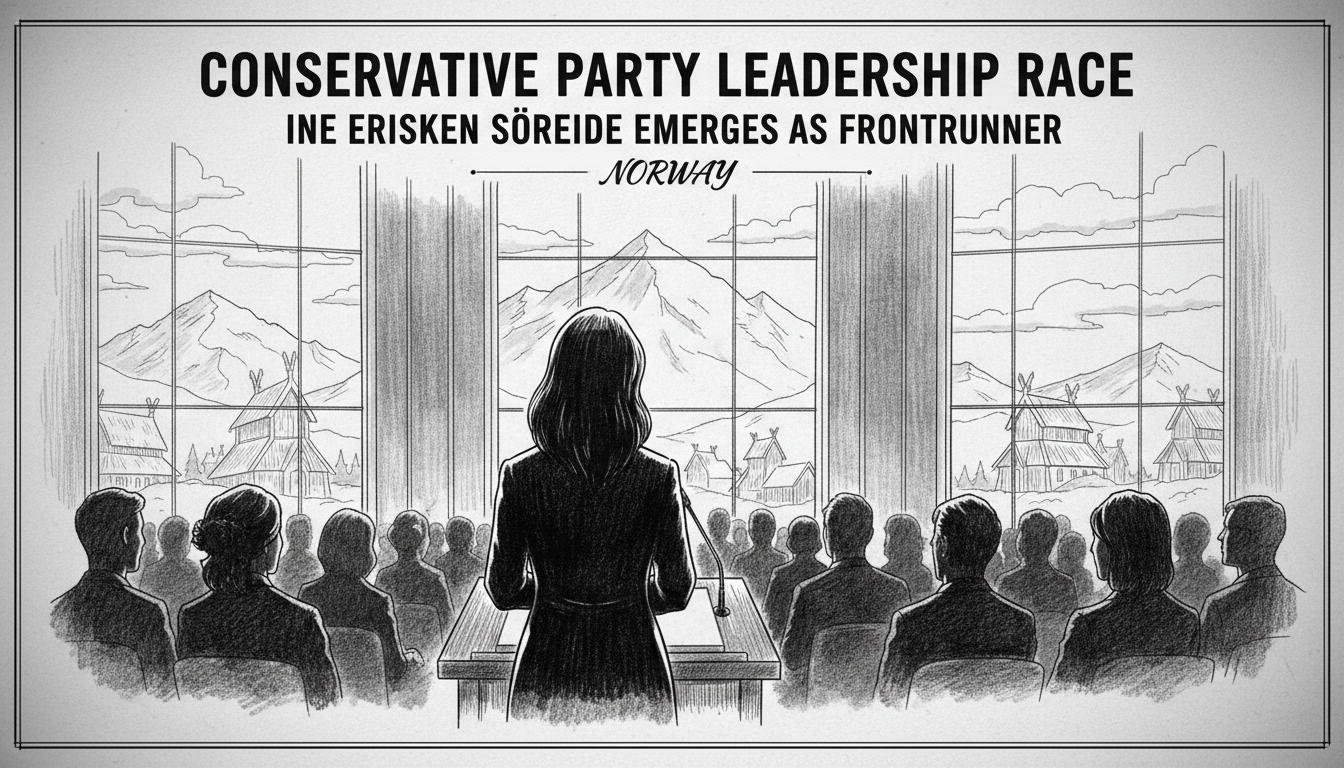Norway's Conservative Party has begun searching for a new leader after Erna Solberg announced her resignation on September 12. The party suffered its worst election result in twenty years, prompting the leadership change.
The selection committee held its first physical meeting on Saturday. They started conversations with what the committee chair describes as "a long list" of potential candidates.
Christian Ingebrigtsen from the committee told media they prefer not to reveal exact names at this stage. He emphasized they have no immediate deadline for candidate decisions.
Ine Eriksen Søreide currently chairs Parliament's prestigious foreign affairs and defense committee. Several Conservative mayors point to her as the clear favorite.
Minerva editor Nils August Andresen stated, "If she wants the position, I believe it will be Ine. She's the one almost everyone can immediately envision as prime minister."
Søreide responded cautiously in a statement. She wrote that she hasn't made a decision yet and appreciates the careful consideration from all potential candidates.
She emphasized her love for the party and its members. Søreide noted that thorough consideration benefits the Conservative Party's future direction.
The leadership transition marks a significant moment for Norway's center-right. The party hasn't experienced a leadership change since 2004 when Solberg took over.
Current deputy leader Henrik Asheim wants to remain in party leadership. He confirmed to media that he's willing to be considered for the top position.
Peter Frølich, another parliament representative, has been proposed for leadership by his local Bergen party organization.
Sandra Bruflot, who leads the Conservative women's network, and Young Conservatives leader Ola Svenneby are also mentioned as potential candidates.
Svenneby won't seek re-election as youth wing leader but remains open to other leadership roles within the party.
The selection process aims to be broad and inclusive according to committee members. They want a recommendation with strong legitimacy throughout the party organization.
Political observers note the Conservative Party faces strategic decisions about competing with both social democrats and populist movements across Europe.
The leadership race comes at a challenging time for center-right parties in Scandinavia. Recent elections have shown shifting voter preferences and fragmentation on the political right.
The new leader will need to rebuild voter confidence while defining the party's direction after Solberg's long tenure.

